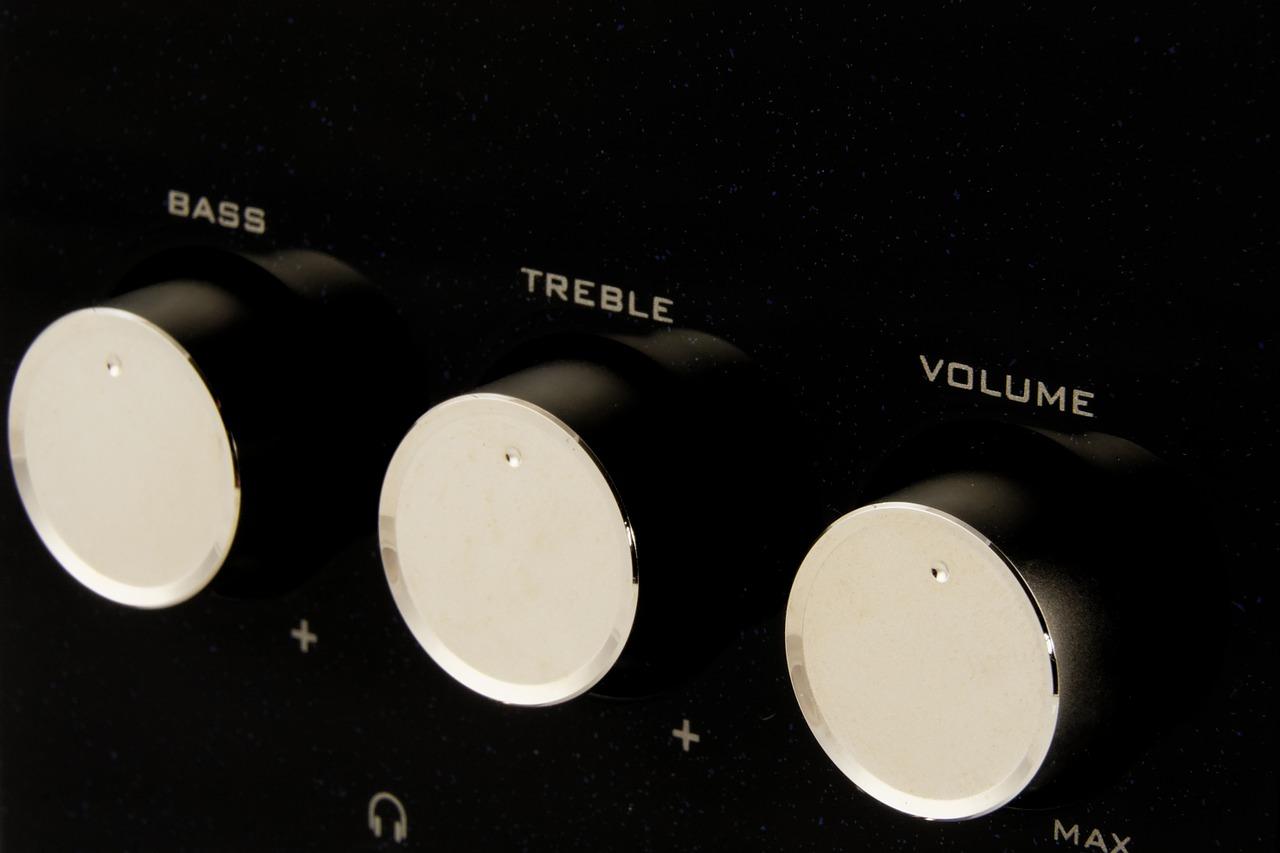[Editor’s Note: Scott R. Burson is the professor of philosophical theology at Indiana Wesleyan University. He is the author of All about the Bass: Searching for Treble in the Midst of a Pounding Culture War (Cascade 2021), Brian McLaren in Focus: A New Kind of Apologetics (Abilene Christian University Press, 2016), and C.S. Lewis and Francis Schaeffer: Lessons for a New Century from the Most Influential Apologist of Our Time (InterVarsity Press, 1998). He spoke to Charles Camosy about his new book.]
Camosy: Can you tell us a bit about your own personal history and how it led to the writing of this specific book?
Burson: I have been a university philosophy professor for 15 years, but prior to that I had a career in higher education and sports communications. I have also done a fair amount of research and writing in the field of Christian apologetics and persuasion in general. So when I came upon the work of New York University social psychologist Jonathan Haidt, I was fascinated by the three principles of moral psychology he outlines in The Righteous Mind.
The three principles are: 1) intuitions come first, strategic reasoning second; 2) morality is more than harm and fairness; and 3) morality binds and blinds. Now Haidt is a naturalist, but it seemed to me that these insights fit quite naturally in a theistic framework and resonate with a Christian anthropology.
I gave a talk on Valentine’s Day 2017 at Indiana Wesleyan University, where I teach. The talk was entitled “All about the Bass: Searching for Treble in the Midst of a Pounding Culture War.” In the talk, I discussed Haidt’s three principles and then offered 10 actions steps (treble tactics) for turning up the treble of compassion without sacrificing the bass of our personal convictions.
The response to the talk was both humbling and encouraging. Many students told me they were tired of anger, outrage, and disgust and were eager to practice the Jesus ethic of loving neighbor and enemy, but didn’t know how to do this. They told me this talk gave them hope through concrete strategies and inspirational stories.
I also was moved by the feedback from colleagues. One of the academic administrators at the university encouraged me to take this message beyond the academy and into the local church. That was when I realized this message was connecting with people and I developed a book proposal. The book was published May 2021.
So in a nutshell, what is the thesis of your book? Why should we be searching for treble in a pounding culture war focused on the bass?
The key metaphor of the book is an audio equalizer with the treble representing compassion intuitions (fairness, liberty, and fairness) and the bass representing our righteous conviction intuitions (in-group loyalty, authority, and sanctity). But Christians have often struggled to achieve this harmonious balance of compassionate treble and righteous conviction bass.
Some Christian streams increase the treble as an expression of tolerance, acceptance, and good will toward those outside the Christian fold. In so doing, however, this approach can sometimes diminish the bass of orthodox Christian teaching. This results in a truncated compassionate Christianity that is thin and tinny, lacking in substance and faithful conviction.
In the midst of the current culture war, however, many Christ-followers have struggled with a different imbalance. Instead of overemphasizing compassion, many have elevated the bass to deafening decibel levels. In so doing, the treble of compassion is overwhelmed by pounding culture-war rhetoric that triggers excessive tribal hubris and deepens the us-them divide. It is like the annoying tricked-out car that you can hear and feel coming toward you from a mile away. All bass, no treble.
This book offers 10 tactics to turn up the treble of compassion without sacrificing our Christian convictions. In so doing, the hope is that we can begin to understand and love family, friends, neighbors, and even enemies as Jesus commands in the Sermon on the Mount.
I love the various strategies you employ and discuss in each of the chapters. Can you point to one that is particularly important in this moment?

The fourth tactic in the book is called “Build Empathic Muscle.” We are currently experiencing an empathy crisis and it seems to be getting worse with each election cycle.
Now, I see empathy as a kind of superpower. It allows us to experience another person’s emotions and think another person’s thoughts. This really is an amazing skill. By doing so, it primes us for compassionate action.
I am especially encouraged by new research that is being spearheaded by Jamil Zaki, the director of the Stanford University Social Neuroscience Laboratory. Zaki’s research suggests that empathy is more of a skill than a trait as traditionally thought. This means that we all have the capacity to grow our empathy like we can grow or build muscle at the gym. While some people have a greater capacity to build muscle or different kinds of muscle, we all have the capacity to build muscle to some degree. Same holds for empathy.
Mindset matters, too. Studies have shown that those who believe they can grow their empathy (mobilists) are more likely to put in more effort than those who don’t (fixists).
Empathy is key if we are going to expand the tribe to include those who are not naturally members of our team. While All about the Bass leads with a musical metaphor, this picture of assembling an empathy gym is helpful, too. What work-out machines would we include in our empathy gym? Would some machines work on emotional empathy (sharing)? Others on our cognitive empathy (thinking)? Still others on empathic concern (caring)?
I currently have a group of students developing an All about the Bass study guide that will fill out this picture of specific practices that are targeted to build different types of empathic muscle.
One strategy, swapping stories, I’ve come to believe is way more important than making arguments. Or at least needs to come before making arguments. Can you say more about this strategy perhaps with a personal story of your own?
I am convinced that human beings are fundamentally storied creatures. Research at Yale University’s Infant Cognition Center shows that babies come into the world primed to think in terms of story. From the earliest days and throughout our lives it is all about story. So it should come as no surprise that concrete stories move us in ways that logic, evidence, and argument do not.
If Haidt’s first principle of moral psychology (intuitions come first, strategic reasoning second) is true, then we need to connect intuitively and emotionally with people before we try to lay out arguments, logic, and facts.
One of the primary ways of connecting intuitively is actively listening to the other person’s story. When I worked as a journalist for many years, I wrote a lot of feature stories. That experience led me to believe that no one is boring if we take the time to hear their story. When we listen with generosity, we are in better position to identify their sacred values and locate some common ground and humanity. This means we need to resist listening for the purpose of refuting and shift to listening for the purpose of understanding. While some people see this as a recipe for compromise, it is possible to understand another person without agreeing with their position.
Stories are the key to humanizing. Back to empathy. There was a study done at Harvard a few years ago in which students were shown faces and brief biographies of two young men: John and Mark. John was described as a typical East Coast liberal Democrat, while Mark was characterized as a Midwestern fundamentalist Christian conservative. After reading the bios, participants were then asked a series of questions while their brains were scanned. Most Harvard students resonated with John, the liberal. That wasn’t surprising. What was surprising was that different clusters of neurons were recruited by the participants depending on how much connection they felt to John or Mark. The majority of Harvard students simulated the mind of John, but not the mind of Mark. Understanding this kind of selective neural activation is key if we are going to maximize the power of story to empathize across a divide.
Do you have strategies for engaging justice minded people who are laser-focused on the bass? Folks who suffer no fools and believe error has no rights? Folks who simply refuse to engage with people who are “evil” by “legitimizing” their point of view or place in the debate? The loudest folks on the right and left seem to be in this kind of place. It is one thing to employ the wonderful strategies you offer in this book — but for many of the most passionate folks out there I suspect it will take a significant shift to get them to the point where they even find the goals of these strategies attractive.
This is a great question and one that I have wrestled with quite a bit. While we should show generosity in our relationships, there is definitely a time to speak truth to power. I read a book recently that has helped me think about this balance. The book is entitled Beyond Civility: The Competing Obligations of Citizenship by rhetorical scholars William Keith and Robert Danisch.
In this book they argue that many of us are operating in competing social imaginaries in our public discourse. Those who assume roles of inquirers, discussants, and witnesses are operating out of a deliberative social imaginary that prioritizes cooperation, collaboration, and compromise between a plurality of actors. The folks you mention in this question, however, are operating out of a critical social imaginary often assuming the roles of critics, warriors, and sometimes even trolls. The critical social imaginary tends to be monologic instead of dialogic and focuses on structural inequity and sees conflict as the most fruitful catalyst to change.
Given these competing social imaginaries, agendas, and strategies it is very difficult to find fruitful intersection. That said, although there might be competing methods, we should all be able to agree that we need to move forward together. So even if critics and warriors see little value in empathy and dialogue, perhaps they could be persuaded that tending to the social fabric of our shared life together is a better long-term strategy for all concerned.














